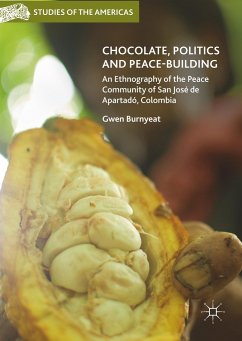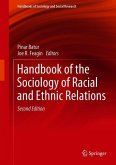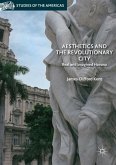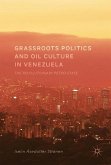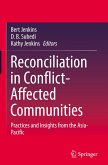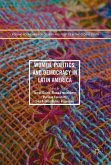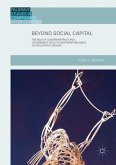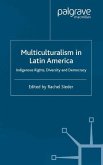This book tells the story of the Peace Community of San José de Apartadó, an emblematic grassroots social movement of peasant farmers, who unusually declared themselves 'neutral' to Colombia's internal armed conflict, in the north-west region of Urabá. It reveals two core narratives in the Community's collective identity, which Burnyeat calls the 'radical' and the 'organic' narratives. These refer to the historically-constituted interpretative frameworks according to which they perceive respectively the Colombian state, and their relationship with their natural and social environments. Together, these two narratives form an 'Alternative Community' collective identity, comprising a distinctive conception of grassroots peace-building. This study, centered on the Community's socio-economic cacao-farming project, offers an innovative way of approaching victims' organizations and social movements through critical, post-modern politics and anthropology. It will become essential reading toLatin American ethnographers and historians, and all interested in conflict resolution and transitional justice.
Read the author's blog drawing on the book here:
http://blogs.lse.ac.uk/latamcaribbean/2018/06/07/colombias-unsung-heroes/
Read the author's blog drawing on the book here:
http://blogs.lse.ac.uk/latamcaribbean/2018/06/07/colombias-unsung-heroes/
"The book as a whole remains a fascinating and well-researched exploration of resistance against terrible odds. Thoughtful and well documented, it is an indispensable addition to the body of ethnographic work on political conflict in what continues to be a violent and deeply polarised polity." (Nick Morgan, Journal of Latin American Studies, Vol. 52 (2), 2020)
"While the book centres on the politics of chocolate in the midst of Colombia's war, it is also about much more. Chocolate, politics and peace-building is an important rumination on one of the most high-profile community-based attempts to create peace in Colombia amidst structural forces that pull towards violence. Burnyeat's ethnography is as urgent as ever now that much of the country is living in a tattered peace, hounded by similar structural forces." (Alexander L. Fattal, Journal of the Royal Anthropological Institute, Vol. 26 (2), 2020)
"Burnyeat's sophisticated, grounded approach and valuable research about peace communities and sustainability will contribute to future discussions about the state, the importance of Community members' identity narratives, and how to achieve sustainable, positive peace." (Suzanne Wilson, Maguaré, Vol. 33 (2), 2019)
"While the book centres on the politics of chocolate in the midst of Colombia's war, it is also about much more. Chocolate, politics and peace-building is an important rumination on one of the most high-profile community-based attempts to create peace in Colombia amidst structural forces that pull towards violence. Burnyeat's ethnography is as urgent as ever now that much of the country is living in a tattered peace, hounded by similar structural forces." (Alexander L. Fattal, Journal of the Royal Anthropological Institute, Vol. 26 (2), 2020)
"Burnyeat's sophisticated, grounded approach and valuable research about peace communities and sustainability will contribute to future discussions about the state, the importance of Community members' identity narratives, and how to achieve sustainable, positive peace." (Suzanne Wilson, Maguaré, Vol. 33 (2), 2019)

